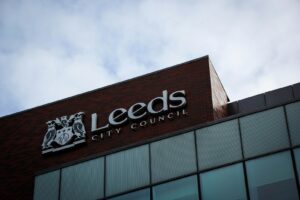Sadiq Khan has been re-elected as the Mayor of London with the smallest mandate since the office was created 24 years ago, analysis shows.
On Thursday 2nd May it was announced that the Labour politician won 43.8% of the vote, which was enough to secure Khan a third term under the new First Past the Post system. However, new research from the Electoral Reform Society found the result means he is the mayor returning to City Hall with the lowest level of support among Londoners who voted, when compared to results under the previous electoral system.
All prior London mayoral elections used the Supplementary Vote (SV) system, which allows voters to indicate a first and second preference for two candidates. Under SV, if no candidate gets over 50% of first preference votes, the top two candidates continue to a runoff where second preference votes from eliminated candidates are allocated – ensuring winning candidates have a broad base of support.
The mayor with lowest vote share under SV was Ken Livingstone, who received 44.4% of votes from voters giving him either their first preference vote or a transferred second preference vote in 2004.
Darren Hughes, chief executive of the Electoral Reform Society, has claimed that this new system is making it more difficult for the public to vote, but is lowering the bar for politicians.
‘What we are seeing at these elections is the bar being lowered for politicians while being raised for voters,’ Hughes said. ‘The move to First Past the Post has lowered the bar for politicians to get elected by taking choice away from voters. The result is we have seen a Mayor of London elected with the smallest mandate ever as well as PCCs and a mayor win their races on around a third of the vote.’
Hughes added: ‘This is bad for voters, who now have mayors and PCCs the majority didn’t vote for; it is bad for elected politicians who have to do their jobs with less backing for their policies; and it is bad for trust in democracy.’
However, Hughes goes on to say that ‘we are seeing the bar to voting being raised for voters as this was the first-time millions had to show ID to cast their ballot.’
‘We know that voter ID has already prevented at least 14,000 people from voting at last year’s local elections and this year we have again heard of voters – including a decorated ex-serviceman – being barred from exercising their fundamental democratic right due to not having an accepted form of ID,’ Hughes continued.
‘Our politics is headed in the wrong direction when we are making it harder for people to vote but easier for politicians to get elected by reducing voter choice at the ballot box. We need to set our democracy on a better course by scraping voter ID and improving access to voting, but also by moving to proportional and preferential voting systems that better represent how people voted.’
Echoing a similar tone, Dr Jess Garland, director of research and policy for the Electoral Reform Society, said: ‘These local elections have again seen a raft of highly disproportionate results under First Past the Post, leading to council chambers that don’t accurately reflect voters’ choices. In some cases, parties have taken over 90% of the seats on less than half the vote, while other parties received no seats despite winning sizable vote shares.
‘There is a clear alternative to the unfair results we have seen in England. Both Scotland and Northern Ireland use a fairer proportional voting system, avoiding the distorted and random results produced by First Past the Post.
‘Proportional representation would mean fairer results at local elections and would create council chambers that better reflect the way people voted.’
Image: Nick Fewings
Local elections 2024: Conservatives in ‘a very tough situation’
Mayor of London pledges to end homelessness under one condition

















Leave a Reply